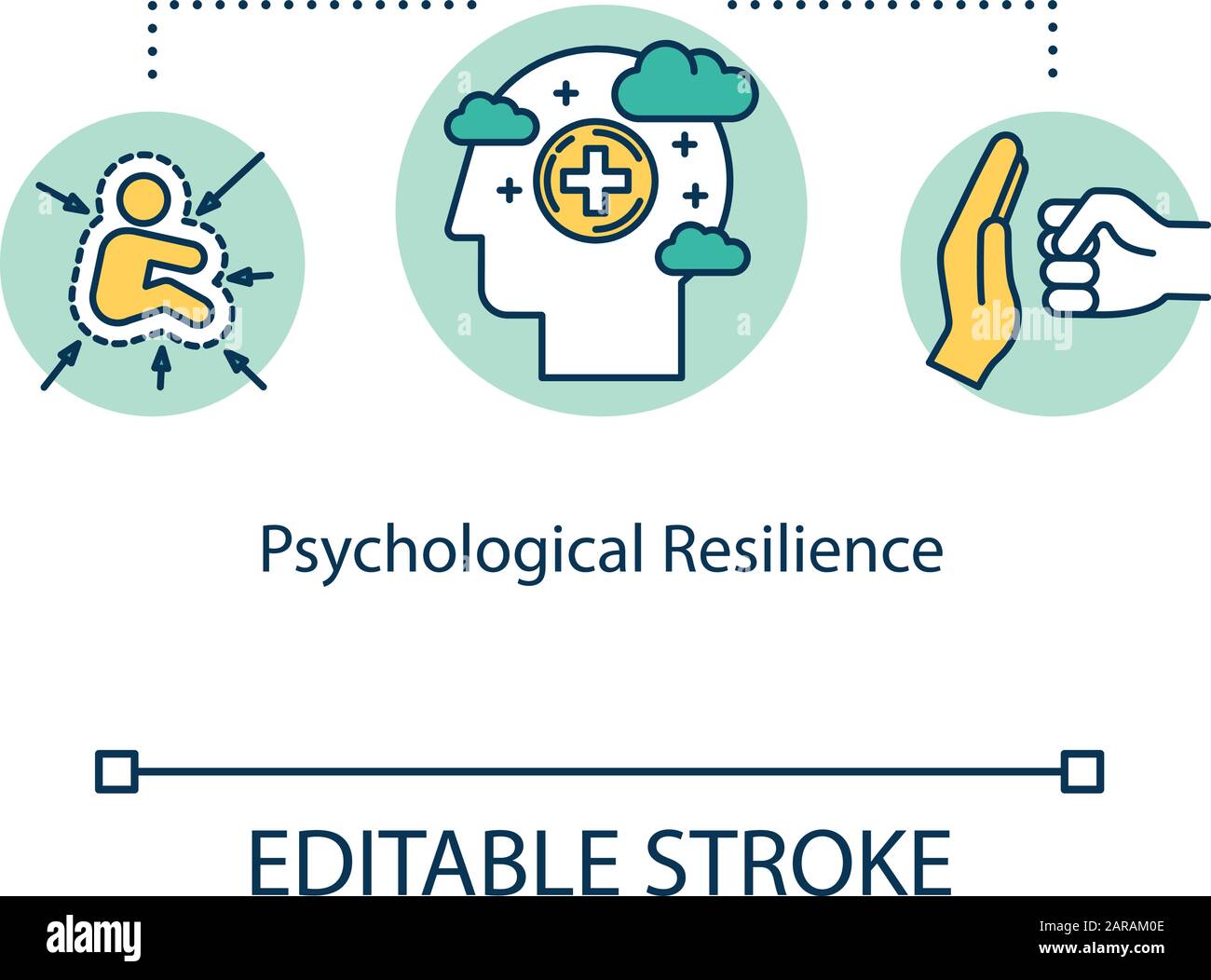Resilience & Mental Health: From Setback To Success

Table of Contents
Understanding Resilience: The Foundation of Mental Well-being
Resilience isn't about avoiding hardship; it's about bouncing back from adversity, adapting to change, and emerging stronger. It's the ability to weather life's storms and maintain a positive outlook, even in the face of significant challenges. Think of a willow tree bending in the wind – it doesn't break because it's flexible and adaptable. That's resilience in action.
Defining Resilience:
Resilience is the psychological capacity to cope with stress, trauma, adversity, tragedy, threats, or significant sources of change. It means bouncing back from difficult experiences, adapting to change, and maintaining a positive outlook despite challenges. Examples of resilience include overcoming a serious illness, navigating a job loss and finding new employment, or successfully managing a difficult relationship.
The Mental Health Connection:
Resilience and mental health are inextricably linked. Strong resilience acts as a buffer against mental health challenges. Individuals with high resilience are better equipped to:
- Cope effectively with stress and pressure.
- Recover more quickly from setbacks and disappointments.
- Maintain a positive outlook and sense of hope.
- Adapt to change and navigate uncertainty.
- Build strong and supportive relationships.
Protective factors associated with resilience include:
- Strong social support networks: Friends, family, and community connections.
- Optimism and a positive outlook: Believing in your ability to overcome challenges.
- Self-efficacy: Confidence in your abilities and your capacity to handle challenges.
- Problem-solving skills: The ability to identify and address problems effectively.
- Self-awareness: Understanding your emotions and strengths.
Building Resilience: Practical Strategies & Techniques
Building resilience isn't a passive process; it requires conscious effort and the adoption of proactive strategies.
Cultivating a Growth Mindset:
A growth mindset is crucial for building resilience. This involves viewing challenges as opportunities for learning and growth rather than as failures.
- Reframe negative self-talk: Replace self-critical thoughts with positive affirmations.
- Focus on effort, not outcome: Celebrate your effort and persistence, regardless of the result.
- Seek feedback: Use feedback to learn and improve, rather than letting it discourage you.
- Embrace challenges: View challenges as opportunities to develop new skills and abilities.
Developing Coping Mechanisms:
Effective coping mechanisms are essential for managing stress and adversity. These can include:
- Mindfulness meditation: Practicing mindfulness can help you stay grounded and present.
- Regular exercise: Physical activity releases endorphins, which have mood-boosting effects.
- Healthy eating: Nourishing your body with healthy foods supports both physical and mental well-being.
- Spending time in nature: Connecting with nature has a calming and restorative effect.
- Engaging in hobbies: Pursuing enjoyable activities provides a sense of accomplishment and relaxation.
- Seeking social support: Talking to trusted friends, family, or support groups can provide comfort and perspective.
The Power of Self-Care:
Self-care is not selfish; it's essential for building resilience. Prioritizing self-care allows you to replenish your resources and better cope with challenges. This includes:
- Getting enough sleep: Aim for 7-9 hours of quality sleep per night.
- Prioritizing relaxation techniques: Incorporate relaxation techniques like deep breathing or yoga into your daily routine.
- Setting boundaries: Learn to say no to commitments that overwhelm you.
- Seeking professional help when needed: Don't hesitate to reach out for professional support if you're struggling.
Seeking Support: When to Reach Out for Professional Help
While building resilience is empowering, it's crucial to recognize when professional help is needed.
Recognizing the Signs:
Several warning signs may indicate a need for professional mental health support, including:
- Persistent sadness or low mood.
- Excessive anxiety or worry.
- Difficulty concentrating or making decisions.
- Significant changes in sleep or appetite.
- Feelings of hopelessness or worthlessness.
- Withdrawal from social activities.
- Difficulty functioning at work or school.
Types of Professional Help:
Several mental health professionals can provide support, including:
- Therapists: Provide therapy, such as Cognitive Behavioral Therapy (CBT) or other evidence-based approaches.
- Counselors: Offer guidance and support for a wide range of issues.
- Psychiatrists: Medical doctors who can diagnose and treat mental illnesses, often prescribing medication.
Finding the Right Support:
Finding the right mental health professional is crucial. Resources include:
- Online directories of mental health professionals.
- Referrals from your primary care physician.
- Employee assistance programs (EAPs).
Conclusion:
Resilience and mental health are deeply intertwined. By understanding the principles of resilience and implementing practical strategies, you can significantly enhance your mental well-being and navigate life's challenges with greater ease and success. Investing in your resilience is an investment in your overall well-being. Start building your mental strength today by incorporating the strategies discussed in this article. Don't hesitate to seek professional help if you need it. Invest in your resilience and protect your mental health – it's worth it!

Featured Posts
-
 Services Juridiques Professionnels Atkinsrealis Droit Inc
May 20, 2025
Services Juridiques Professionnels Atkinsrealis Droit Inc
May 20, 2025 -
 March 31 Nyt Mini Crossword Complete Answers
May 20, 2025
March 31 Nyt Mini Crossword Complete Answers
May 20, 2025 -
 Triumfalnoe Vozvraschenie Novaya Sharapova V Mire Bolshogo Tennisa
May 20, 2025
Triumfalnoe Vozvraschenie Novaya Sharapova V Mire Bolshogo Tennisa
May 20, 2025 -
 Wwe Raw 5 19 2025 3 Things We Loved And 3 We Hated
May 20, 2025
Wwe Raw 5 19 2025 3 Things We Loved And 3 We Hated
May 20, 2025 -
 Ferraris Warning Prioritizing Hamilton Could Alienate Leclerc
May 20, 2025
Ferraris Warning Prioritizing Hamilton Could Alienate Leclerc
May 20, 2025
Latest Posts
-
 Juergen Klopp Un Yeni Takimi Son Dakika Transfer Detaylari
May 21, 2025
Juergen Klopp Un Yeni Takimi Son Dakika Transfer Detaylari
May 21, 2025 -
 Is There A Britains Got Talent Feud Between David Walliams And Simon Cowell
May 21, 2025
Is There A Britains Got Talent Feud Between David Walliams And Simon Cowell
May 21, 2025 -
 Alleged Britains Got Talent Feud David Walliams Attacks Simon Cowell
May 21, 2025
Alleged Britains Got Talent Feud David Walliams Attacks Simon Cowell
May 21, 2025 -
 Little Britain Cancelled Why Gen Z Loves It
May 21, 2025
Little Britain Cancelled Why Gen Z Loves It
May 21, 2025 -
 Britains Got Talent David Walliams And Simon Cowells Public Feud Explodes
May 21, 2025
Britains Got Talent David Walliams And Simon Cowells Public Feud Explodes
May 21, 2025
